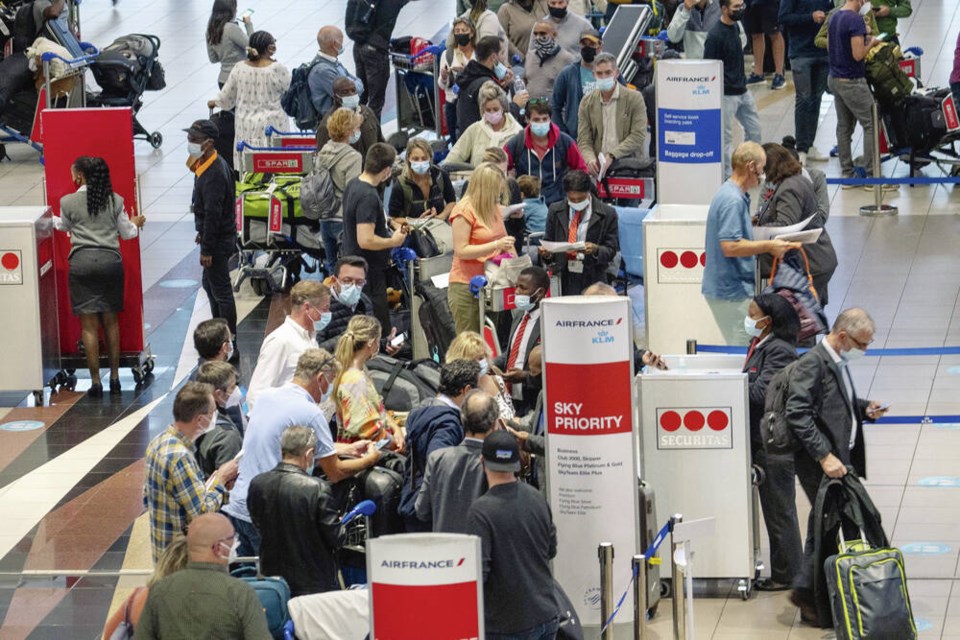There’s no evidence so far that the most recent COVID-19 variant, originating in South Africa, has spread to B.C., provincial health officer Dr. Bonnie Henry said Friday.
The new variant, dubbed Omicron, follows four other variants of concern: Alpha, Beta, Gamma and Delta. The latter is the dominant variant in B.C.
Omicron’s emergence in South Africa coincided with a steep rise in the number of COVID-19 cases in that region, according to the World Health Organization.
Federal officials say no cases have been detected in Canada.
Vaccination and taking steps to reduce transmission continue to be the best defence against all variants of COVID-19, said Henry.
She said the B.C. Centre for Disease Control’s public health lab has sequenced more than 90,000 virus “isolates” in B.C., and will continue to use whole genome sequencing to monitor for all variants circulating in B.C., including Omicron.
Henry and Health Minister Adrian Dix said in a statement they support the federal government’s move to close Canada’s borders to visitors from southern Africa in response to the newly identified variant of concern.
The ban applies to foreign nationals who transited through a list of seven countries in the last 14 days, including South Africa, Mozambique, Botswana, Zimbabwe, Lesotho, Namibia and Eswatini (previously known as Swaziland). Those already in Canada who recently travelled through the region will need to quarantine and be tested for COVID-19.
Global Affairs is also issuing an advisory to discourage non-essential travel to South Africa and neighbouring countries.
“We do not yet know the impact this new [variant of concern] will have on transmission or of severity of illness, but taking this immediate precautionary action is prudent,” said Henry and Dix.
B.C. public health officials are monitoring the new variant internationally, and will work with the Public Health Agency of Canada and Canada Border Services Agency to identify anyone recently returned from the areas of concern to arrange testing and to ensure they remain well, said Henry and Dix.
Last week, B.C. reported the first confirmed case of the Delta-plus variant known to epidemiologists as AY.4.2 in the province. The AY.4.2 strain was first found in the United Kingdom and is thought to be slightly more transmissible.
That strain has not been given the more serious “variant of concern” designation. It’s deemed a variant of interest, Henry said last week, adding health officials are watching carefully to see if new variants are associated with less effectiveness of the vaccine.
ceharnett@timescolonist.com
— With a file from The Canadian Press

